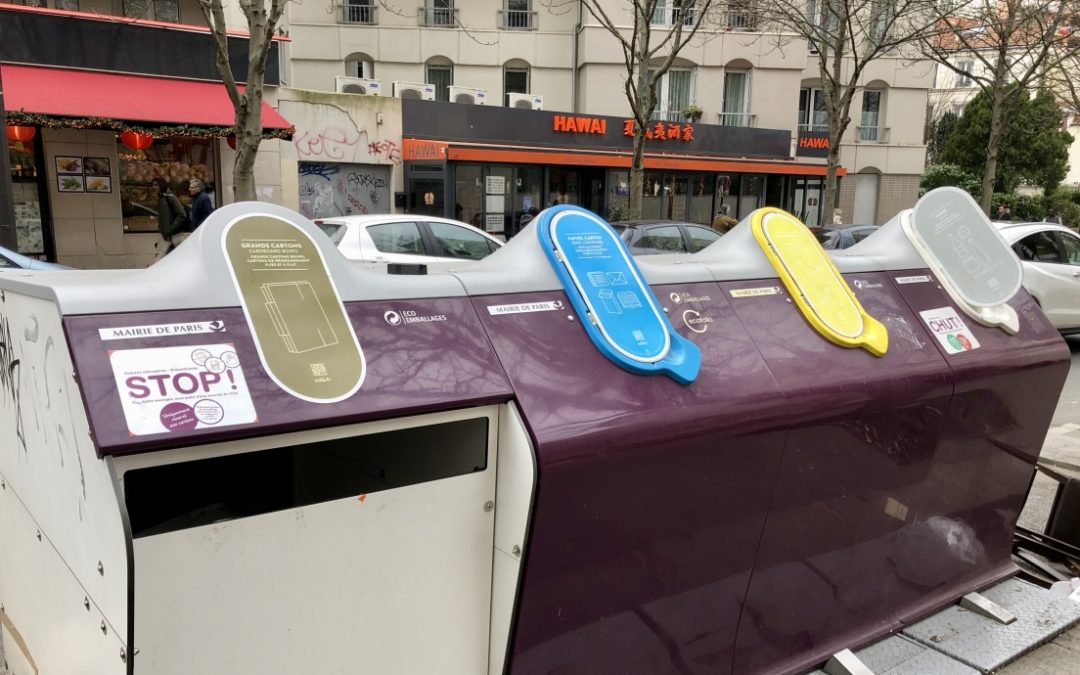In France, more than one kilo of waste is produced per person per day. In order to collect this waste intelligently, many devices are available to us, allowing a fluid management of waste in urban areas.
Innovative equipment for your waste collection
Les Trilib’
Located in the 2nd, 13th, 18th and 19th arrondissements, the Trilib’ allow Parisians to deposit their recyclable waste. These voluntary drop-off points, accessible 24 hours a day, are made up of different modules that can be used to collect all kinds of waste such as plastic and glass bottles, paper, cardboard and even clothing.
The advantage? To be able to sort waste in the street and to remedy the difficulty of collecting waste in the big cities. Moreover, making such devices available to citizens encourages waste sorting and recycling. Indeed, in Paris, only 20% of packaging is collected separately and recycled.
In a context of circular economy, this new neighborhood collection also allows to support associations. Among them,Carton Plein, a non-profit association, collects every week large boxes so that they can be reused.
Les “Smart Trucks”
Have you ever heard of smart collection trucks? Tested in Rennes and developed by Suez, these “ smart trucks ” are equipped with sensors that measure air quality and fine particles, making it possible to identify the most polluted areas.
In addition, these smart trucks collect data and monitor flow management in real time. In the same way as our Heywaste solution, this makes it possible to adapt the frequency of passage and to benefit from savings in terms of working time, fuel and reduced CO2 emissions.
On the positive side, these “smart trucks” are less polluting, running on natural gas. They thus contribute to improving the quality of life of the people of Rennes. The data collected is centralized in the Suez Data Lab, available to the local authority.
The “Tri en Seine” floating waste collection center
At the beginning of July, it was at Tolbiac, in the 13th arrondissement of Paris, that Parisians were able to get rid of their bulky waste. A floating waste collection center, also developed by Suez, was docked for three days and collected nearly 15 tons of waste, which was then taken by river to the sorting center in Gennevilliers.
What is at stake with this floating waste collection center? To avoid the flow of numerous trucks on the roads producing greenhouse gas emissions. This barge sees itself as a solution to the problem of garbage collection in the heart of Paris, notably due to the lack of space.
This experimentation, named “Tri en Seine” is also tested in Lyon since 2016
Our Trilib experience
Since February 2019, we have the chance to experiment with our Heywaste solution on Trilib.
The goal of this experimentation? To test Heywaste with communities and staff in charge of collection. This test also allows us to measure the impact of the solution on collection rates, container overflow and illegal dumping.
The first results of our experimentation are very positive. Indeed, thanks to the data collected by the sensor, we have noticed that the containers are rarely full at the time of collection. A reduction in the frequency of collections is therefore interesting for a sustainable management of the city.






